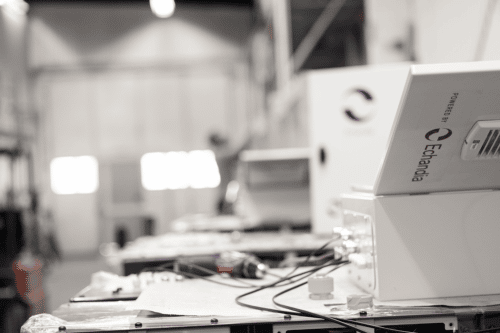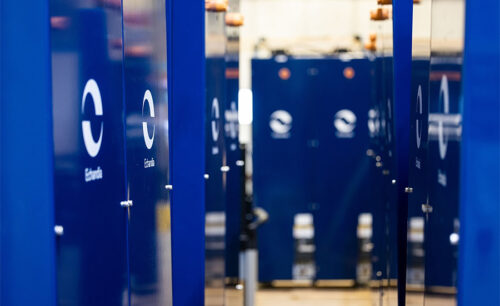

The rise of the LTO battery
- Insights
- 1 October 2021
Are you familiar with the LTO battery? It is safer than NMC batteries and is a more cost-efficient solution. The LTO battery is light, fast charging, and durable, which is why it’s becoming an increasingly popular option for maritime applications.
What is an LTO battery?
A lithium-titanium-oxide battery (LTO) is a heavy-duty Li-ion battery. LTO cells incorporate an LTO anode instead of the graphite anode common in NMC and LFP batteries. Owing to their use in EVs, today’s most common chemistry is G/NMC. G/LFP is upcoming as one chemistry to replace G/NMC as the predominant chemistry for EV applications.
The LTO battery chemistry is less well-known than NMC, even though the technology has been around for more than ten years. LTO is primarily used in heavy-duty applications due to its characteristics. It has been used in conventional vehicles but is mainly used as a starter battery. Other applications outside of maritime include factory robots and industrial applications.
Benefits of LTO batteries
Durability
All batteries lose charge capacity over their life cycle, but an LTO battery typically loses much less than an NMC. It has a much longer lifespan than any other battery chemistries, which will result in a significantly lower total cost of ownership.
Rapid charging
The characteristics of LTO batteries mean they are especially useful for frequent charge and discharge cycles and can deliver high amounts of power for a shorter time. On the other hand, its high C-rate means you can recharge the battery quickly and frequently.
Safety
A battery fire can be instigated by external or internal events such as electrical shorting, rapid discharge, overcharging, manufacturing defects, mechanical damage, poor system design, among others. In conventional Li-ion cells, an increase in temperature results in the breakdown of the graphite anode and anode-electrolyte interphase that protects the anode from the highly reactive liquid electrolyte.
That results in a catastrophic chain reaction wherein the temperature rises uncontrollably, causing fires in neighboring cells and eventually the entire system.
Thermal runaway
All batteries enter thermal runaway at different temperatures. NMC batteries are sensitive to heat and enter this state at much lower temperatures than the LTO cell. A battery used in any application, maritime or otherwise, will never be 100% safe, but as far as secure options go, LTO ranks highest.
Many battery types require external fire monitoring and suppression techniques. Still, the best measure for battery safety is using a battery chemistry inherently resistant to their initiation and thus thermal runaway. The unique anode chemistry of LTO battery systems makes them exceptionally resistant to the failure modes that cause fires in conventional Li-ion battery systems.
 hbspt.cta.load(19496325, ‘a5e7229d-26f8-450a-93aa-87962922fb75’, {“useNewLoader”:”true”,”region”:”na1″});
hbspt.cta.load(19496325, ‘a5e7229d-26f8-450a-93aa-87962922fb75’, {“useNewLoader”:”true”,”region”:”na1″});
When is the LTO battery system not a fit?
Operational profiles
A key concept in battery system design is operational profiles. LTO battery systems are optimal for high-power and frequent charge/discharge cycles. For operational profiles that require more extended periods of usage and, for instance, can only be charged overnight, LTO is not always the best fit.
Lower energy density
NMC and LFP cells have a higher energy density than LTO cells. However, the total system weight depends on how the cells are used. That means that LTO systems are lighter than NMC or LFP systems when long life or high power to weight is required.
Conclusion
LTO offers unmatched safety, maximal utilisation of installed capacity, and the longest lifetime available for the maritime market. Read more about finding the most cost-efficient battery system.


